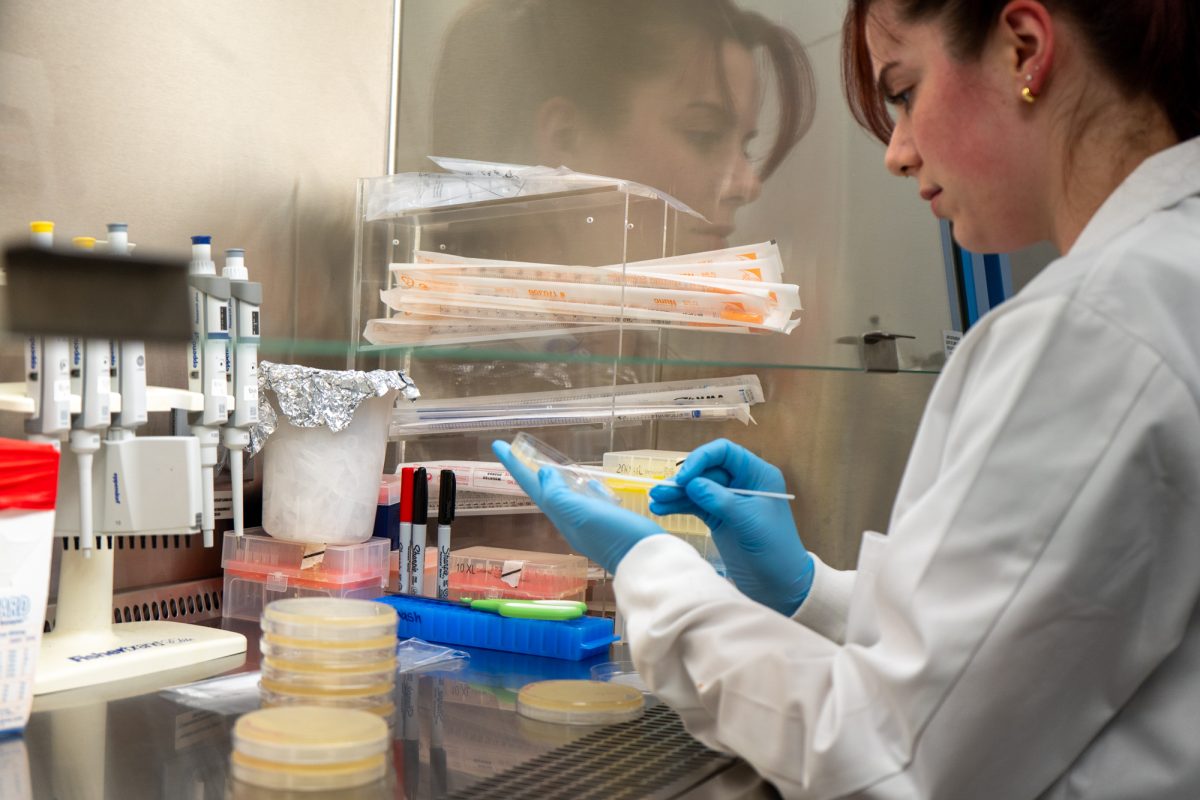Thousands of freshmen engineering students this fall no longer have the option to directly select a specific degree-granting major during their first semester.
The policy, called the Common First Year Plan, comes by way of the 25 by 25 initiative that aims to raise enrollment in the Dwight Look College of Engineering to 25,000 students by 2025. CFY delays a student’s admission into a specific engineering department until at least one completed semester in an attempt to provide a common first-year experience.
Administrators and some students say the new policy produces a better educational experience, but others are unimpressed with the change.
P.K. Imbrie, director of Undergraduate Academic Programs, said the goal is to provide a common initial experience for engineering students to help them make an informed choice about which engineering branch they want to pursue.
“It enables the University to have a mechanism for students to have hands-on experience and help them understand a little more about each engineering field, as opposed to the students having to choose a specific field during high school and ending up being stuck with that choice,” Imbrie said.
Imbrie said a large number of engineering students choose to switch engineering tracks after their first year, a major factor in the decision to implement the common first year.
“It was difficult to accommodate all of the students wanting to switch majors because departments fill up,” Imbrie said. “For example, if someone in aerospace wanted to switch into mechanical, oftentimes they weren’t able to even if they had the required GPA, because mechanical was already full. It frustrated some students to the point where they ended up just dropping engineering entirely.”
Teri Reed, assistant dean for engineering academic affairs, said the general engineering curriculum for freshmen in the new plan continues to evolve, but the students will be required to take one math course, one science course and one engineering course prior to applying for their specific field.
“Engineering classes such as Engineering 111 and 112 are altering their curriculum to expose the students to general engineering information and to help them make an informed choice on their track,” Reed said. “Also, specific introductory courses, such as Aerospace 101, which were previously freshmen courses, will either be changed to sophomore level courses or done away with entirely.”
Jackie Perez, programs coordinator, said students must answer specific questions, indicate their GPA and explain why they prefer a certain track when applying for a specific field.
Imbrie said the application process will help prevent a “GPA-centric” student mindset and allow departments to pick better-fitting students.
Imbrie said the students will be driven to work harder to get into their department of choice as a result of the application process.
“I think the spirit of students will be comforted by the fact that GPA isn’t everything,” Imbrie said. “It will motivate them to work hard and be passionate about what they’re doing. It inspires a whole new kind of competition.”
Megan Rodriguez, engineering freshman, said students already set on a career goal when they enter the college of engineering find the plan to be restrictive.
“The uncertainty of admission, the stress of putting together yet another application and the struggle to achieve a competitive GPA while enjoying college life are just some of the many disadvantages so many students have to face early in college due to the common first year plan,” Rodriguez said.
Reed Hermes, engineering freshman, said the plan offers no solution for students coming in with AP or dual-credit courses.
“I am coming in with a total of 52 hours of credit through AP tests and dual-credit and had completed nearly all of the university-required curriculum and was planning on graduating in three years,” Hermes said. “But after registering for all the classes I was allowed to, I only had nine hours of classes. I faced the problem of losing scholarship eligibility because of it and an extra unnecessary $25,000 in tuition.”
Danny Stamp, engineering freshman, said he finds comfort in the plan.
“Because of the common first year plan, every engineering student is entering the challenges of engineering together,” Stamp said. “I’ve found that the whole engineering student body can now be used as a resource, rather than everyone being in different courses.”
Travis Mehaffey, industrial engineering junior, said he believes the freshmen will benefit from the plan.
“As a whole I think this will effectively promote awareness about what each major has to offer,” Mehaffey said. “It sounds a lot better than incoming freshmen blindly choosing an engineering discipline without a substantial amount of prior knowledge.”
Imbrie said he expects the plan will be advantageous to the university.
“I look across the country and I see almost no other schools using this system,” Imbrie said. “I think what we’re doing by making a common first year in comparison to the rest of the country is making A&M a more viable option for prospective students who want to be well-shaped engineers.”
Policy moves engineering major decision to 2nd semester
September 9, 2014
0
Donate to The Battalion
Your donation will support the student journalists of Texas A&M University - College Station. Your contribution will allow us to purchase equipment and cover our annual website hosting costs.
More to Discover







